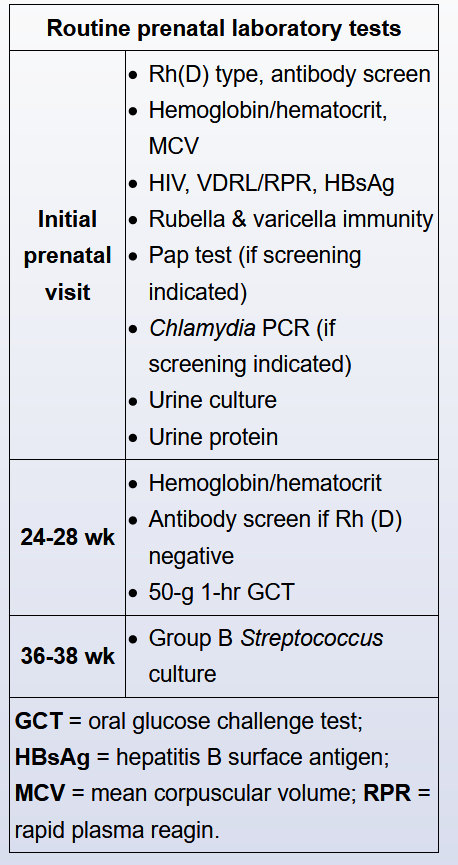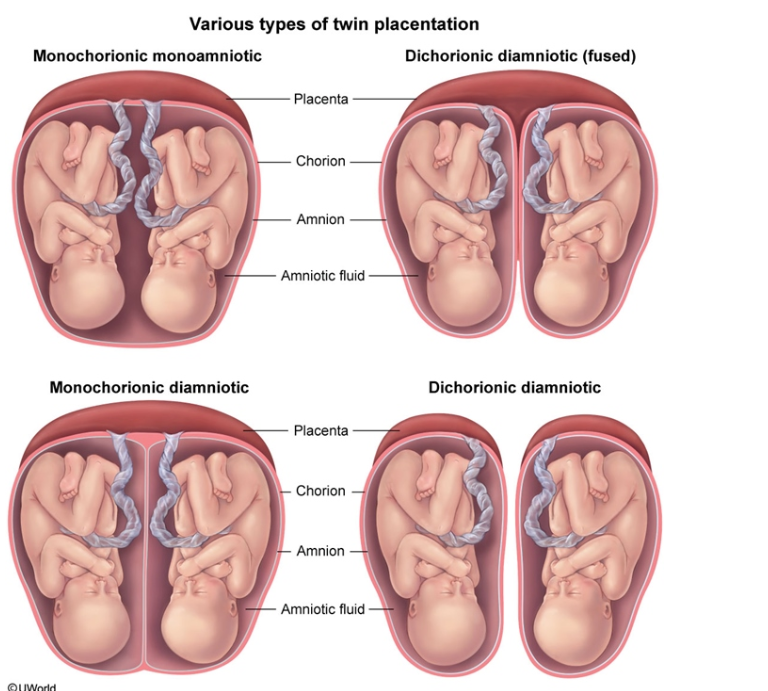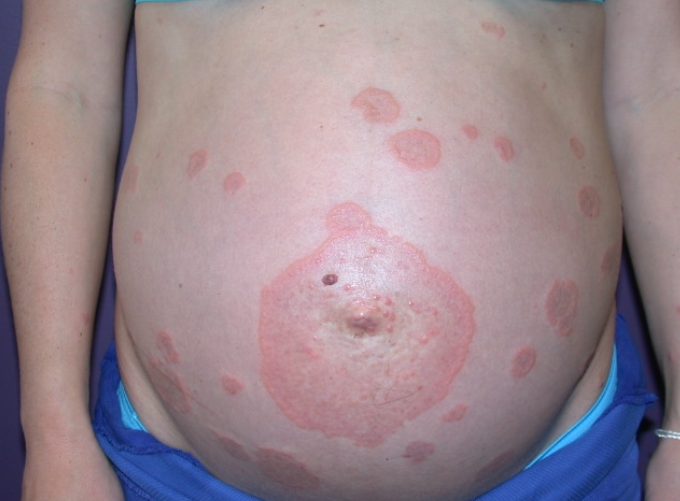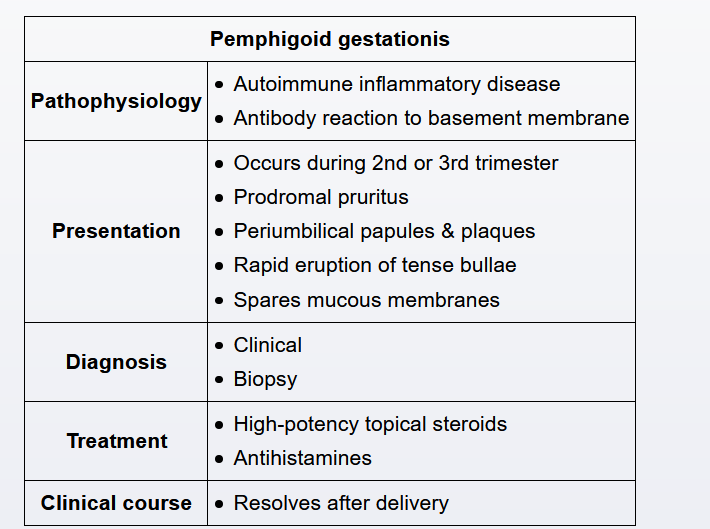routine prenatal screening

At 24-28 weeks gestation, all pregnant women should undergo screening for anemia with a hemoglobin/hematocrit or a complete blood count (which can be compared to results from the initial prenatal visit). Physiologic anemia occurs in most pregnancies secondary to an expanding plasma volume that is disproportionate to the increase in red blood cell mass. Iron requirements increase in pregnancy; treatment of physiologic anemia is with iron supplementation.
Gestational diabetes mellitus screening is also performed at 24-28 weeks due to the rise in human placental lactogen, a hormone secreted by the placenta that increases fetal glucose supply by inducing maternal insulin resistance. Women with a positive 50-g 1-hour glucose challenge test undergo a subsequent confirmatory 100-g 3-hour glucose tolerance test prior to the diagnosis of gestational diabetes mellitus.
In addition, Rh(D)-negative women should undergo antibody screening and receive an anti-D immune globulin injection.


